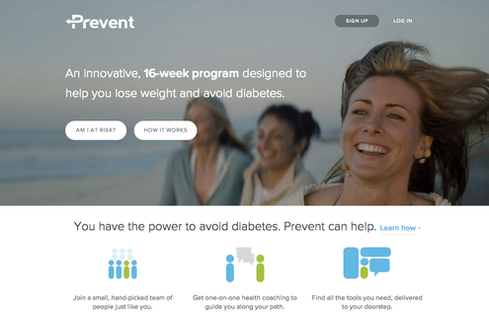Secret Sauce For ACOs: One Healthcare CIO's Answer
Hackensack University Medical Center CIO Shafiq Rab says building an accountable care organization meant looking beyond EHRs.


8 Healthcare Startups Catch Fire
8 Healthcare Startups Catch Fire (Click image for larger view and slideshow.)
The technological underpinnings for an accountable care organization (ACO) include all the basic healthcare IT you have heard so much about, including electronic health records (EHRs), electronic medical records (EMRs), and health information exchange (HIE) for transmitting patient data between participating organizations that are not necessarily all on the same EHR.
ACOs also need something else, according to Hackensack University Medical Center CIO Shafiq Rab, whose institution leads the Hackensack Alliance ACO in partnership with physician practices in its region. An ACO also needs software to fill in the gaps between the other systems and services. That missing piece, active care coordination management, will be the subject of an HIMSS conference presentation he will be giving later this month along with Alan Gilbert of technology provider TEAM of Care.
The Hackensack Alliance ACO was created to participate in the Medicare Shared Savings ACO program and recently announced having achieved $10 million in shared savings in its first year. The goal of these programs is to deliver better quality at a lower cost of care by having providers agree to make some of their compensation dependent on value delivered rather than fee for each service performed. In practice, results have been uneven with only a fraction of ACOs delivering significant savings.
[Could government and medical professionals' goals be aligned? 3 Ways Affordable Care Act Can Empower Health IT.]
Rab said one of Hackensack UMC's challenges was that it couldn't afford to simply buy up networks of physician practices to work with and tell them what software to use. Instead, the medical center had to work more collaboratively with practice groups and make some joint technology decisions while leaving individual participants a degree of autonomy.
Certainly, they needed to have a base level of EHR functionality, and they needed to commit to making their technology work together. "I'm begging people not to have 75 different EMRs," Rab said. While it would be helpful to have one EMR standard, for now Rab is trying to steer participants toward four or five preferred vendors. "And if the EMR does not totally integrate, then it's time to choose another EMR," he added. Another base requirement is that participating providers must connect to an HIE, he said. "If they're not connected with an HIE, it's not going to work out."
In addition, the medical center hired Team of Care, which provides care coordination management, data integration, and business performance management software to help the ACO function better. New technology is required because "care coordination is never something people have ever been paid for," said Gilbert, co-founder and chief growth officer of Team of Care. It used to be that follow-up communications with patients were something doctors were supposed to accomplish in their spare time, whereas an ACO should be able to recognize that time as just as valuable as time spent on office visits, he says.
Team of Care focuses on tracking the care patients receive outside of the doctor's office or hospital visit, ensuring greater continuity of care, and it tries to integrate that workflow into the EHR software the doctors and nurses are already using, rather than trying to change their established habits, Gilbert said.
The goal is to go from having the data to acting on it. "Most hospitals already know who their high flyers are, but they need to know what to do to actually manage them," Gilbert said. Team of Care's software organizes the workflow for follow-up and preventative care. If the hospital's Epic system is generating an alert, Team of Care makes sure that message gets to the doctors and nurses on their phones and other devices. In the process, it will escalate the attention paid to the alert if it relates to one of the chronic diseases the ACO is focusing on managing better.
"We're not telling the doctor how to practice medicine," Gilbert said. He and Rab both emphasized that it's not up to the software to say what action to take or what medicine to provide, only to keep the process on track and keep a record of what was done for the patient. The algorithms that drive the software were originally developed for use at a Canadian hospital in Vancouver, British Columbia, and have been adapted for use in the US ACO market, with Hackensack Alliance ACO as the flagship first customer.
Hackensack University Medical Center also participates in a regional cooperative, AllSpire Health Partners, through which the participating health systems have been pooling their buying power and planning tighter integration of their HIE infrastructure. The other partners are Atlantic Health System and Meridian Health in New Jersey, along with Lancaster General Health, Lehigh Valley Health Network, Reading Health System, and WellSpan Health in Pennsylvania. That group could develop into a "super ACO," Rab said.
Meanwhile, the Hackensack Alliance is showing the ACO model can work. A few years from now, ACOs may be called by another name, but the basic idea of changing how healthcare services are valued and paid for will remain, he predicted. Once Medicare demonstrates that it can achieve real savings with this model, private payers will follow. "Care coordination will ultimately become better. As reimbursements are more guided by preventative care, this will have its own legs," he said.
InformationWeek 2014 Healthcare IT Priorities Survey: Healthcare providers are under pressure from Meaningful Use Stage 2, ICD-10 implementation, and the transition to new population health/accountable care business models, all of which have big impacts on information technology needs. We'd like to know how your organization is responding. Take the InformationWeek 2014 Healthcare IT Priorities Survey today and be eligible to win a great prize. Survey ends Feb. 14.
About the Author
You May Also Like






